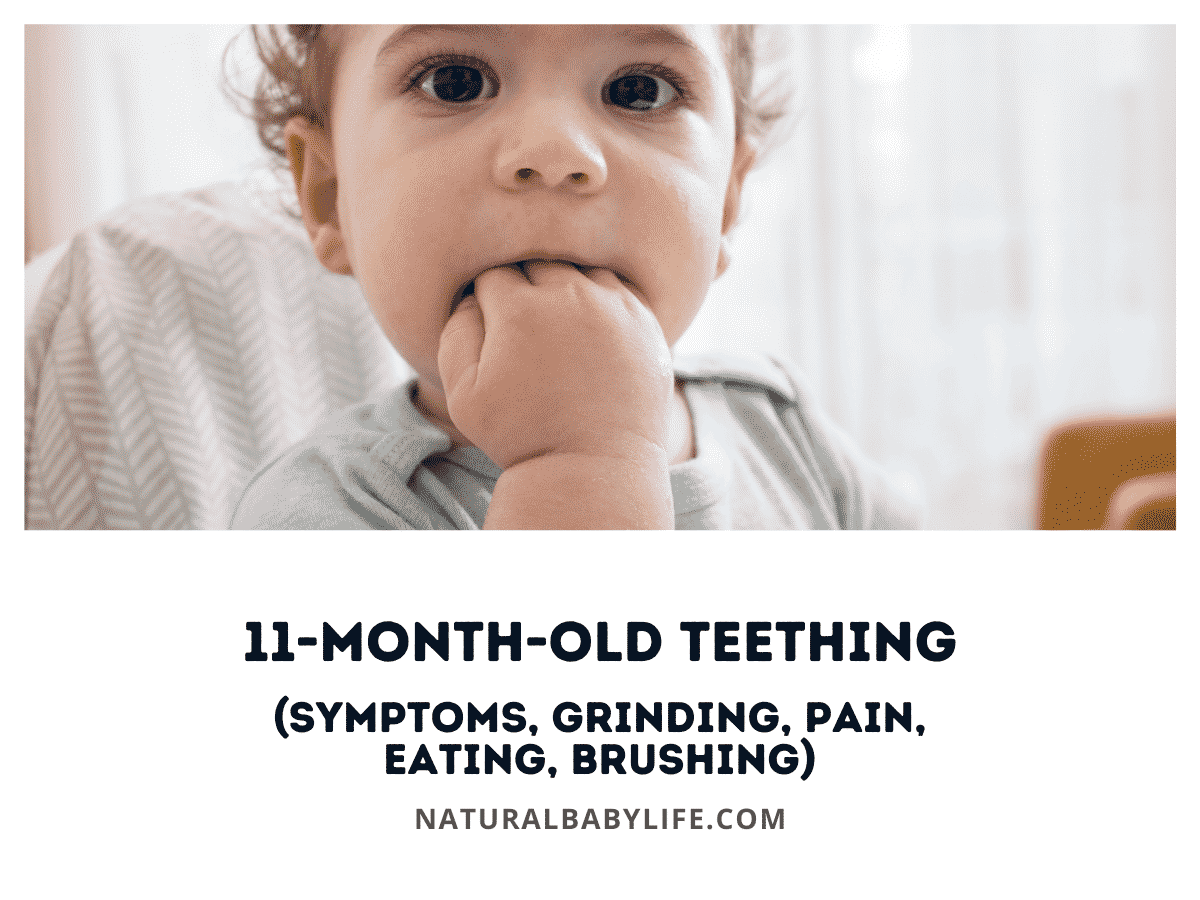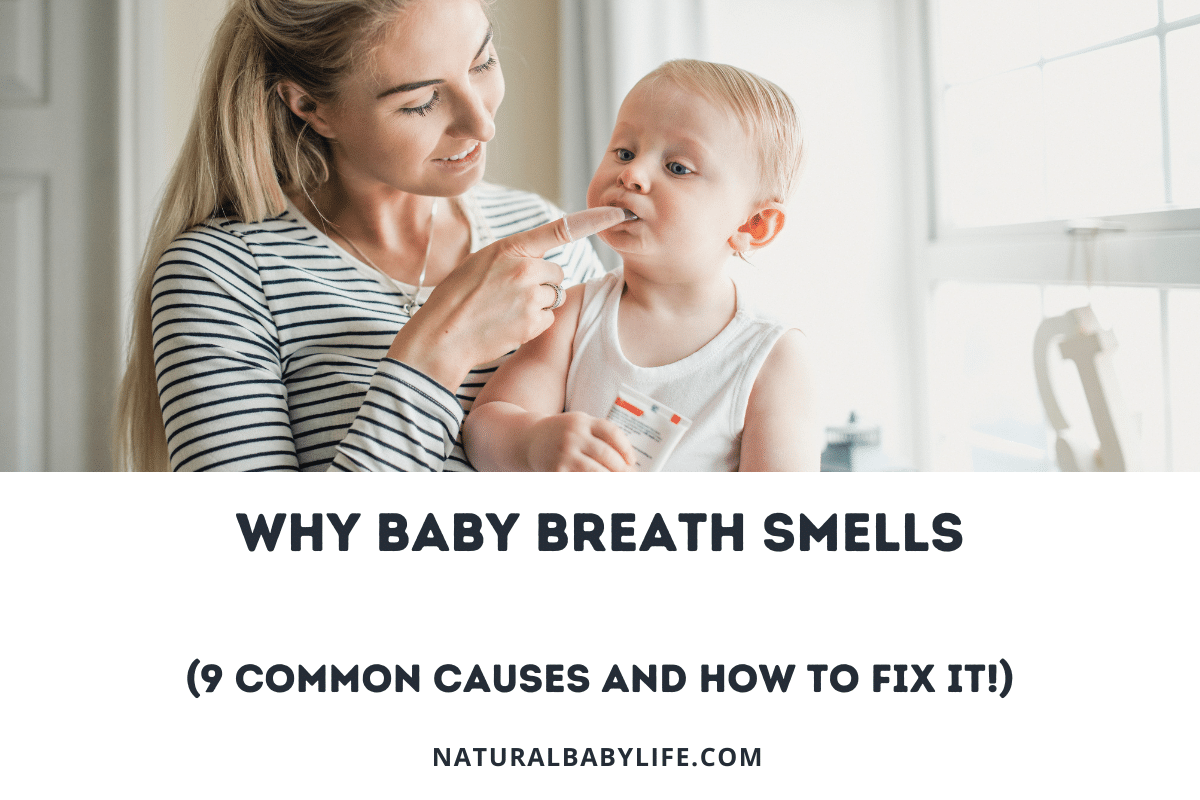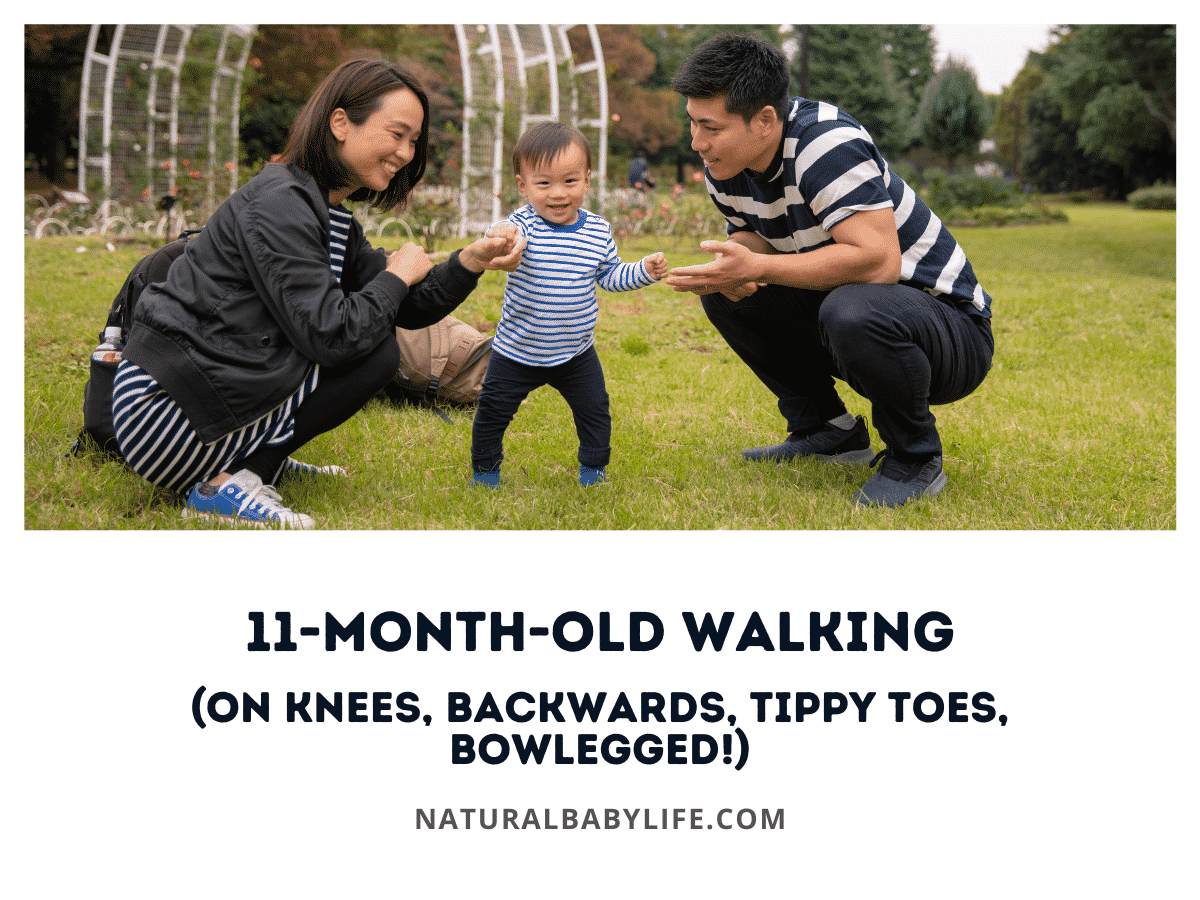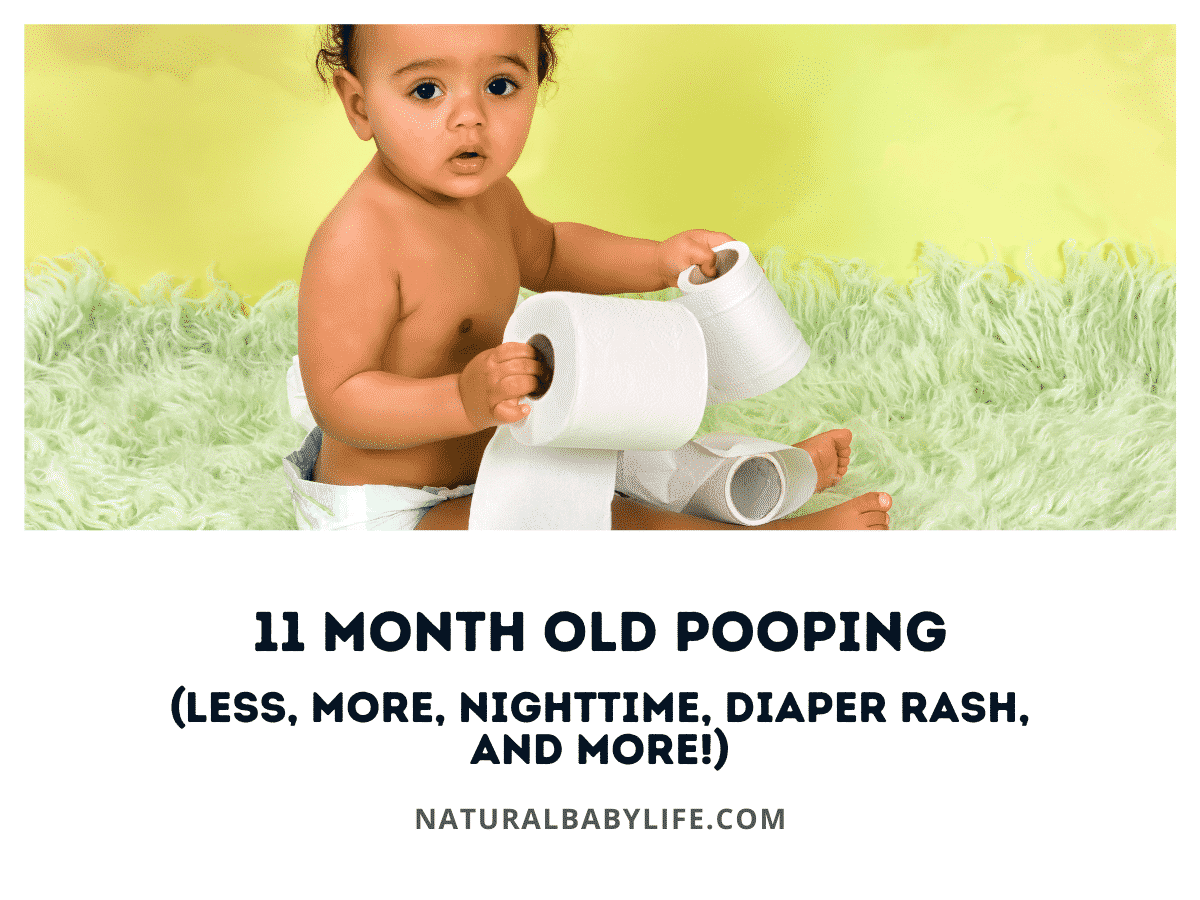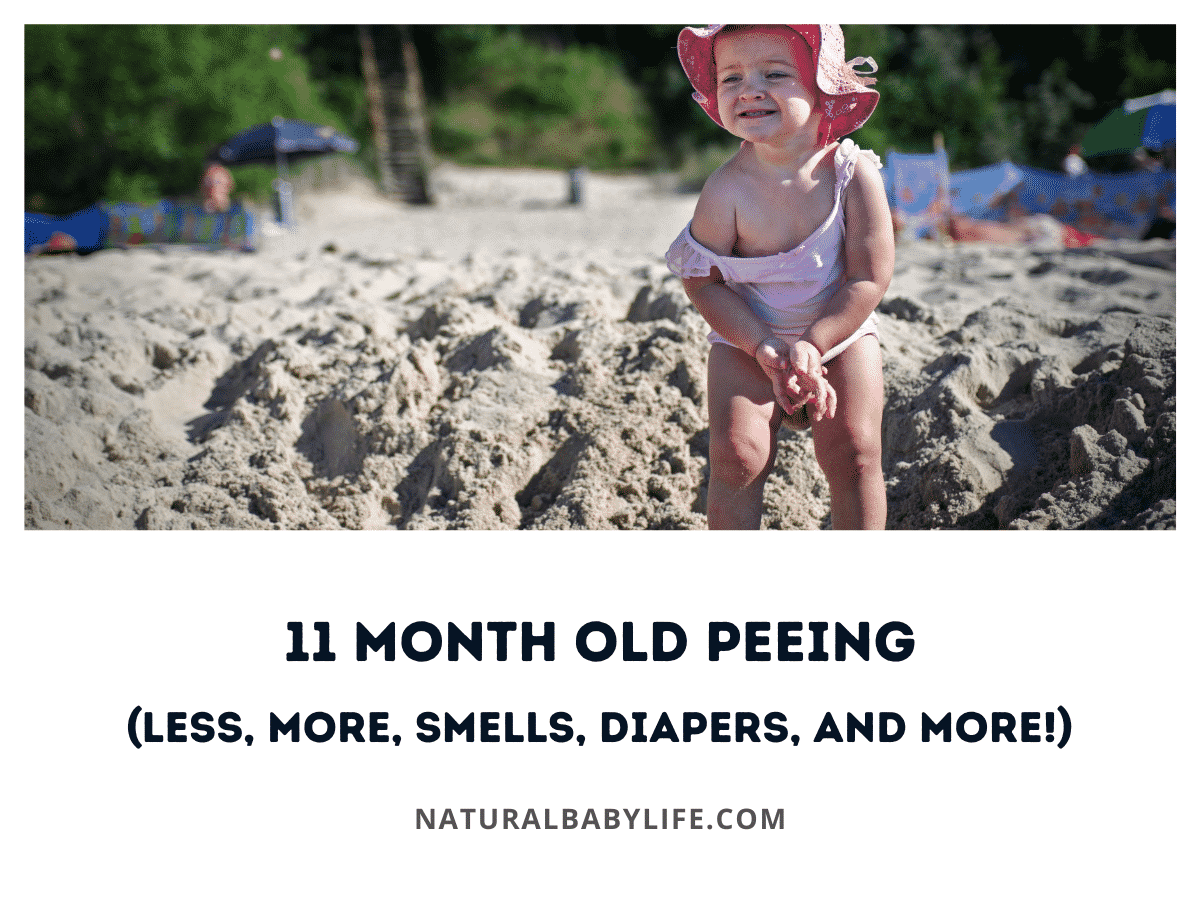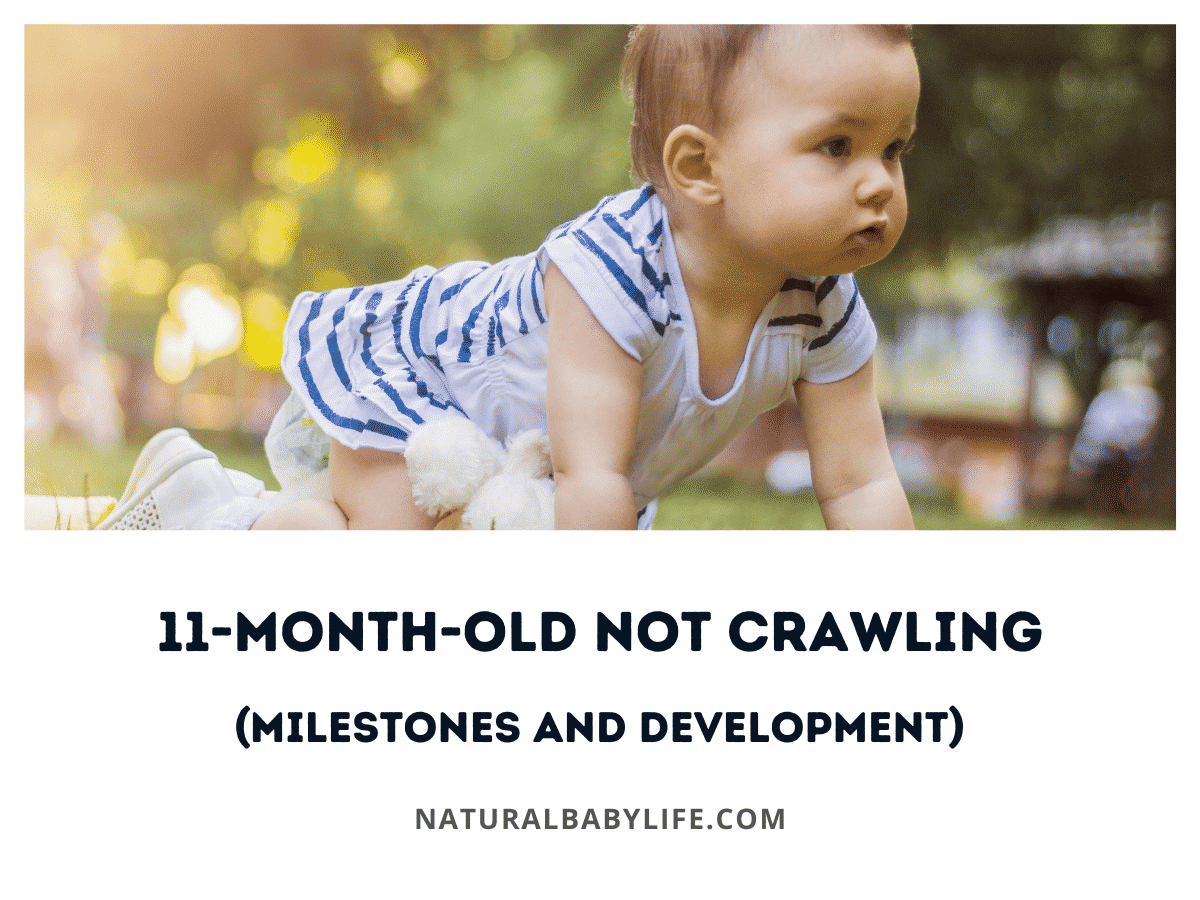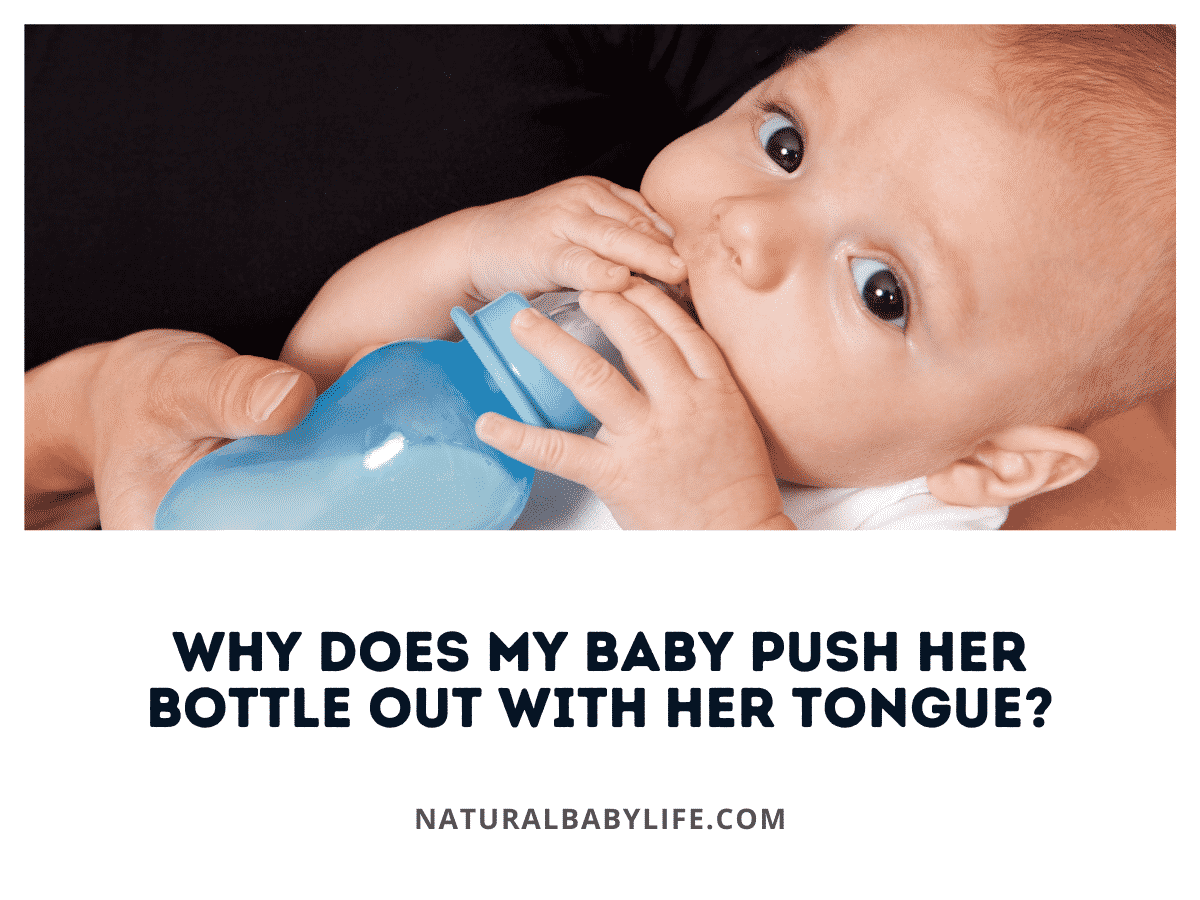Your 11-month-old baby is growing up quickly and will soon be a toddler! There are a lot of changes that come with 11 months, and this includes a milestone that all babies suffer through: teething. You will notice physical and behavioral changes in your baby, that might lead you to question whether or not it is normal with teething.
It is common for 11-month-old babies to experience pain and discomfort when they cut new teeth. Common teething symptoms include pain, fever, not eating or sleeping, coughing, drooling, and biting. While teething is uncomfortable, it can be treated at home. Once your baby’s first teeth pop up, you should begin brushing them twice a day.
Read along as we discuss teething at 11 months. We will talk about the symptoms and what you can do to help your baby through this transition.
Table of Contents
Can an 11-month-old experience teething
According to the Mayo Clinic, it is completely normal for 11-month-old babies to go through teething.
Teething in babies typically starts at 6 months although this timeframe can vary. Some babies cut teeth as young as 3 to 4 months, but others won’t start teething until 12 months or so. This can bring discomfort but the common symptoms that go with it can be treated at home.
As with every milestone, it is hard to predict when your baby’s teeth will arrive, there are some babies who experience symptoms months before the first tooth erupts.
On the other hand, some lucky babies don’t experience symptoms at all.
Baby teeth, also known as primary teeth, are important in your baby’s development, even though they are seen as the temporary placeholder for your child’s permanent teeth.
Now that your baby’s first tooth has erupted, it’s time to think about proper care. When the first baby’s tooth comes in, it is important to practice good dental hygiene. The ADA recommends that the first dentist visit should occur six months after the baby’s first tooth comes in.
How many teeth should an 11-month-old have?
Teething happens to every baby and the time that it starts varies greatly.
By the time your baby turns 11 months, he will typically have 4 teeth. The first two teeth to appear are typically the bottom front teeth or central incisors, followed by the top front teeth or the upper central incisors. The first two teeth generally appear between 6 to 10 months while the top two teeth will erupt between 8 to 12 months.
Your baby might be experiencing symptoms and discomfort but rest assured that teething symptoms are normal and can be treated at home.
Do babies get sick when teething?
According to WebMD, teething is a likely painful event that every baby goes through, but it usually doesn’t actually make babies sick.
For 11-month-old babies, it is completely normal to undergo teething which is usually accompanied by discomfort and symptoms such as pain, low-grade fever, and fussiness while eating. These symptoms can be safely treated at home and are considered normal.
Sometimes, It is hard to tell between teething and the symptoms of your baby having a cold or ear infection because some of the symptoms are the same which is why parents confuse teething with actual illnesses.
On the other hand, if your baby has diarrhea, vomiting, high-grade fever, and a cough that doesn’t go away, these symptoms should not be confused with teething and you should contact your doctor right away.
11-month-old teething symptoms – how to treat them!
Your 11-month-old is growing before your eyes and before you know it, teething starts and makes your happy baby a little cranky and uncomfortable.
As your baby starts to experience symptoms concerning teething, you will notice behavioral and physical changes in him. These are all normal and should not be a cause of concern, but there are some things you can do to comfort your little one.
Here are some of the common teething symptoms and how to treat them at home:
Pain
It is normal for 11-month-old babies to go through teething which can cause some pain and discomfort.
If your baby seems to be in pain and uncomfortable, you can try massaging his gums with your clean finger. You should always be gentle when doing this but try to apply firm pressure.
Massaging your baby’s gums will help increase the blood flow in the gums which will help decrease the inflammation and pain.
Using a cool compress like a frozen washcloth or a cold teething ring can also help your baby deal with the teething pain. The cool temperature will bring relief to your baby, especially if the gums are sore and inflamed.
If you have done all the tricks in the book and your baby is still in pain and miserable, you can try giving him pain medication like ibuprofen or acetaminophen. These medications are safe to use, just make sure that you are using them occasionally and giving the right dosage depending on your baby’s weight and age.
Consult your doctor if you are planning on giving your baby medication for more than 24 hours.
What about numbing gels specifically made for teething? These are topical numbing gels that contain lidocaine or benzocaine. While these gels are extremely popular and are advertised to help with teething pain, the AAP states that these gels should not be used. Studies show that these gels are not helpful and that the baby’s drool will wash away the gel.
Is teething pain worse at night?
At nighttime, all the distractions go away and your baby might be feeling the symptoms intensify during this time just because there’s nothing that can distract him away from it.
Because of this, parents seem to think that teething pain is worse at night, especially if their baby can’t settle or sleep well because they are uncomfortable.
Fever or high temperature
Teething can be accompanied by a low-grade fever which is characterized by a body temperature between 98-100°F.
If your baby has a low-grade fever and is uncomfortable, you can treat this at home by giving pain medication like acetaminophen or ibuprofen in the right dosages.
High-grade fever is not a symptom of teething and should be treated right away because this means that your baby is trying to fight infection. If your baby’s temperature reaches 101° or more, it is best to consult your doctor for further guidance.
Is the fever worse at night?
Low-grade fevers tend to spike up at night because your baby is trying to settle down.
If your baby’s temperature is higher than 101°F, you should contact his doctor.
Not eating
When teething, your baby’s gums are inflamed which sometimes can make eating uncomfortable. This can lead to decreased appetite or no interest in eating at all.
If your baby doesn’t want to eat, you can feed him breast milk or formula to supplement food. You can also purée his favorite solid foods so that it’s easier to eat without putting pressure on his mouth.
You can also give him popsicles made up of breast milk or puréed food. The coldness of the popsicle will help with the teething pain and at the same time, he will get the nutrients he needs since he is not eating.
Won’t sleep
Teething will make any happy baby more cranky and fussier than usual which can also translate to fighting sleep during bedtime and naps.
During the day, your baby can be easily distracted by playtime but at night, when everything is quiet and the distractions go away, your baby will feel the dull pain more which can lead to interrupted sleep.
Because teething babies are experiencing dull pain and are uncomfortable, it is hard for them to relax and ease into sleeping.
You can make your baby settle into sleep by rubbing his back and singing to him so that he can feel safe and secure.
Coughing
Because of the excessive saliva that your baby is producing because of teething, coughing can be a symptom of teething.
When it comes to coughing that is accompanied by high fever, you should contact your doctor because high temperatures coupled with flu-like symptoms are a sign that your baby is sick.
If the cough has a distinct sound like whooping or wheezing, this can be a sign of an illness so it’s better to consult with your doctor.
Drooling
One of the first tell-tale signs that your baby is teething is the amount of drool that he is producing.
The theory behind drooling a lot while teething is based on the increase in the muscle movement in the mouth during this period that stimulates chewing, which in turn, activates the salivary glands.
There is nothing that you can do to prevent drooling but you have to care for the area that the drool is concentrated on because it can lead to rashes and skin irritability. The extra bacteria from your baby’s saliva can cause rashes in the neck, chin, mouth, and cheek area.
To prevent skin rashes from developing, you have to keep the area clean and dry by wiping it. You can also put a cream like Aquaphor in your baby’s skin to act as a barrier and an extra layer of protection from the drool.
Biting
One of the common signs of teething is biting or gnawing.
Biting down on objects can bring a sense of relief to your baby especially when he is undergoing teething symptoms because his gums are itchy and uncomfortable.
When you see that your baby is biting or gnawing on objects, you can give him a cold teething ring or a frozen popsicle made of breastmilk or pureed food. The cold temperature can bring much-needed relief to your baby’s gums.
Rubbing ears, gums, and cheeks
If you notice your baby rubbing his ears, gums, or cheeks, this can be a sign that they are trying to relieve the pressure that they are feeling in their gums.
Some babies will also pull their ears, which can also be a sign of an ear infection so it’s best to reach out to your doctor if you notice this in your baby.

